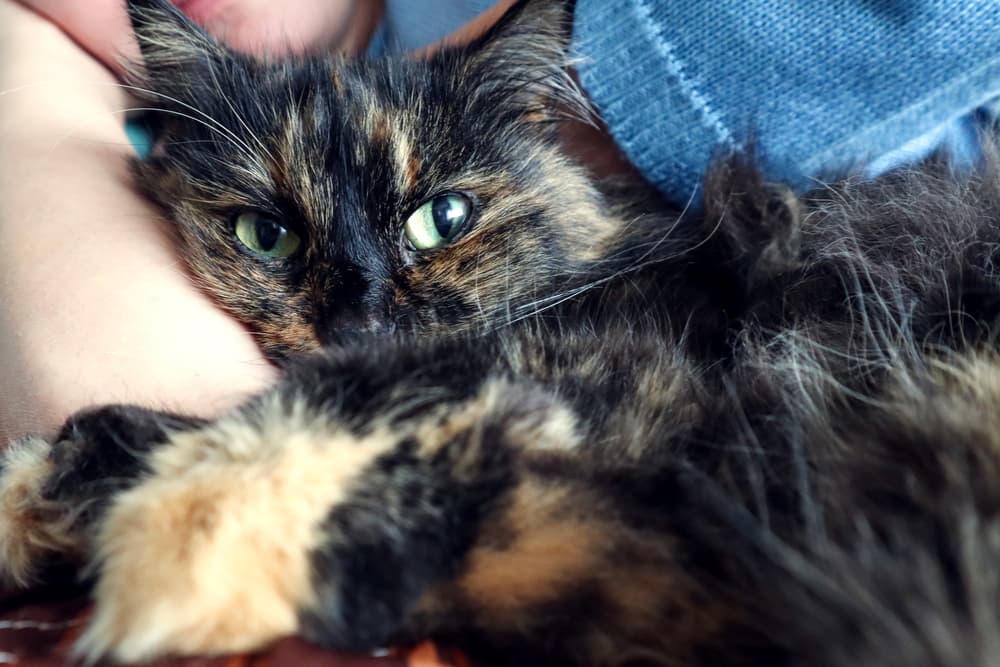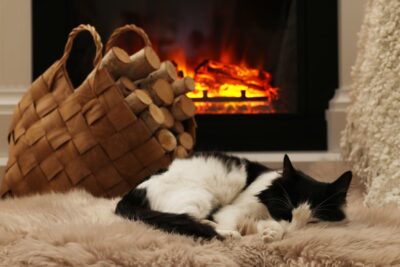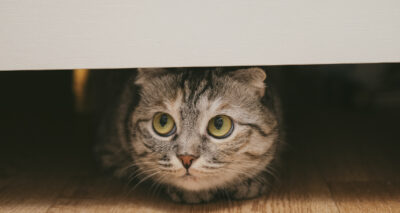Why Does My Cat Follow Me Everywhere?

Cats are loved by humans for many reasons. We appreciate their physical beauty, their aura of mystery, their hunting prowess, and the way they express affection towards us and other beings.
One of the ways cats puzzle and delight humans is in how they cling to us and seemingly shadow us at all times. If you’re wondering: “Why does my cat follow me?” you’re not alone. Let’s get to the bottom of why they do it, what they are trying to communicate, and when it’s a problem.
Following Behavior in Cats: Why it Happens
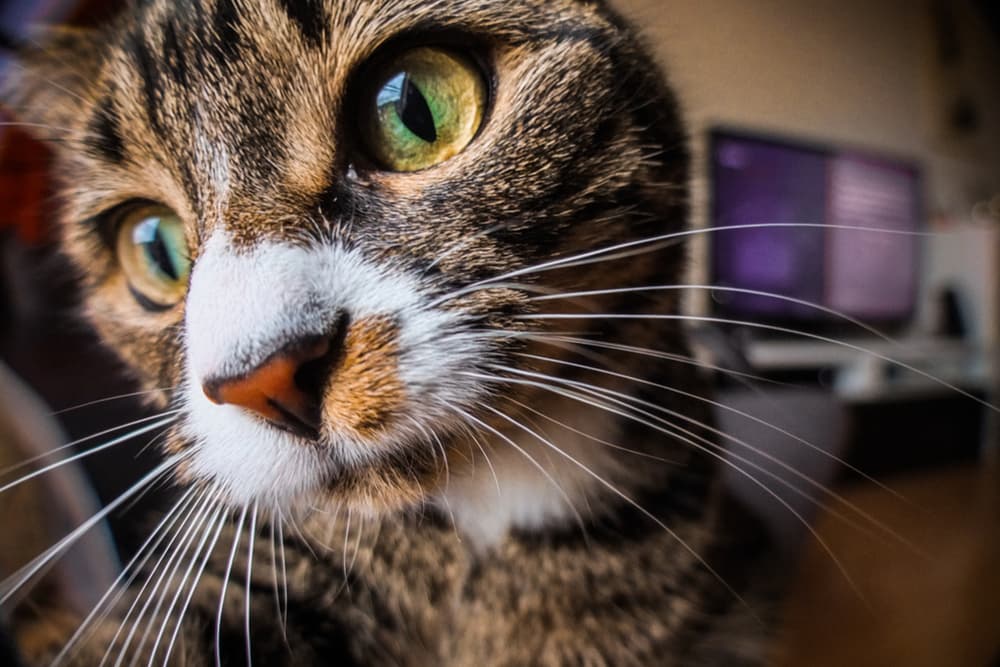
In most cases, a cat following you around is considered normal behavior, especially when they share a close bond with you.
Cats follow humans for multiple other reasons, including:
- Curiosity
- Attention-seeking behavior (they want cuddles and pets)
- Boredom
- Hunger
- Wanting to play
- Territorial behavior
Some breeds, including Ragdolls, Bengals, Maine Coons, Persians, Siamese, Tonkinese, and Sphynx are considered to be “velcro cats” that bond closely to their humans and may follow them more than other breeds.
Why Does My Cat Follow Me Everywhere?

You are the center of your cat’s world and the keeper of all their resources, so it makes sense that your cat follows you around. In addition, your cat shares a strong bond with you, may be curious to what you are doing, may have insecurity, may want your attention, or may think that you will feed or play with them. They may also want access to a part of the house they are normally barred from entering.
These are all normal reasons why cats may seemingly follow you everywhere. In some cases, your cat may follow you because they feel stressed or anxious about being separated from you. However, most of the time, your cat follows you because they want something or they are just curious about what you’re doing.
Why Does My Cat Follow Me to the Bathroom?
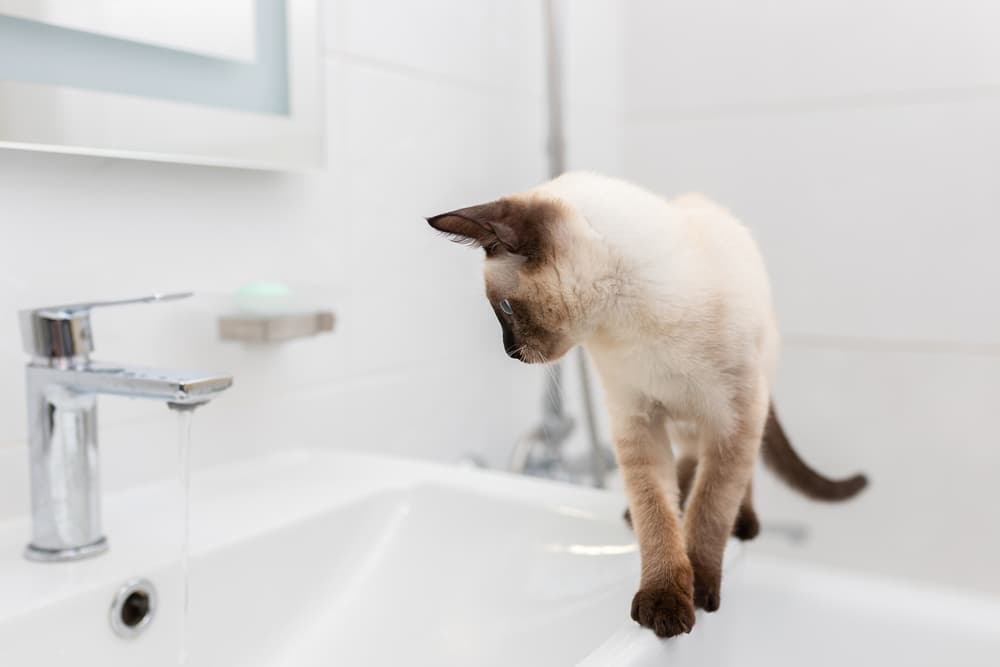
While we don’t know for certain why cats like to follow people to the bathroom, there are some theories that make sense based on feline behavioral tendencies. One theory is that cats are territorial mammals that want to know what is going on inside their territory. And the bathroom (like the rest of the house) is considered part of your indoor cat’s territory.
But cats may also venture into the bathroom with you because—let’s be honest—bathrooms have lots of fun things (including you) in them. Things like toilet paper rolls, dripping sinks, blinds on the windows, water in the toilet, towels on the floor, may be looked at as play things for our feline friends. Plus, in the bathroom, you’re a captive audience.
Cats may also like the bathroom because it is full of things marked with your scent, which can be comforting. Another comforting and cozy part of the bathroom? Yep, the sink is often an alluring spot for your kitty to snooze.
If your cat’s habits of following you to the bathroom are a problem for you, talk to your veterinarian or a feline behavior specialist on how to retrain your cat.
My Cat Follows Me Everywhere and Sleeps with Me

If your cat follows you everywhere and sleeps with you, this is a sign that your cat is strongly bonded with you and, dare I say, loves you. In general, this isn’t an issue, but if your cat exhibits any signs of separation anxiety (see below) or if it is annoying to you, talk to your veterinarian or a certified feline behavior specialist on ways to get your cat interested in things other than you.
Cats who sleep with their family should be given a monthly dewormer to reduce the risk of transmitting parasites to their family.
My Cat Follows Me Everywhere But Won’t Cuddle

Cats that follow their owners but don’t want to cuddle can be frustrating, especially if you want to get in some snuggles.
Some reasons a cat may not enjoy physical contact include individual personality variations, a lack of adequate socialization during kittenhood, a history of being feral, or a previous negative experience associated with human physical touch.
If this is the case, talk to a feline behavior specialist on how to help your cat become more comfortable with human touch.
Why Does My Cat Follow Me and No One Else?
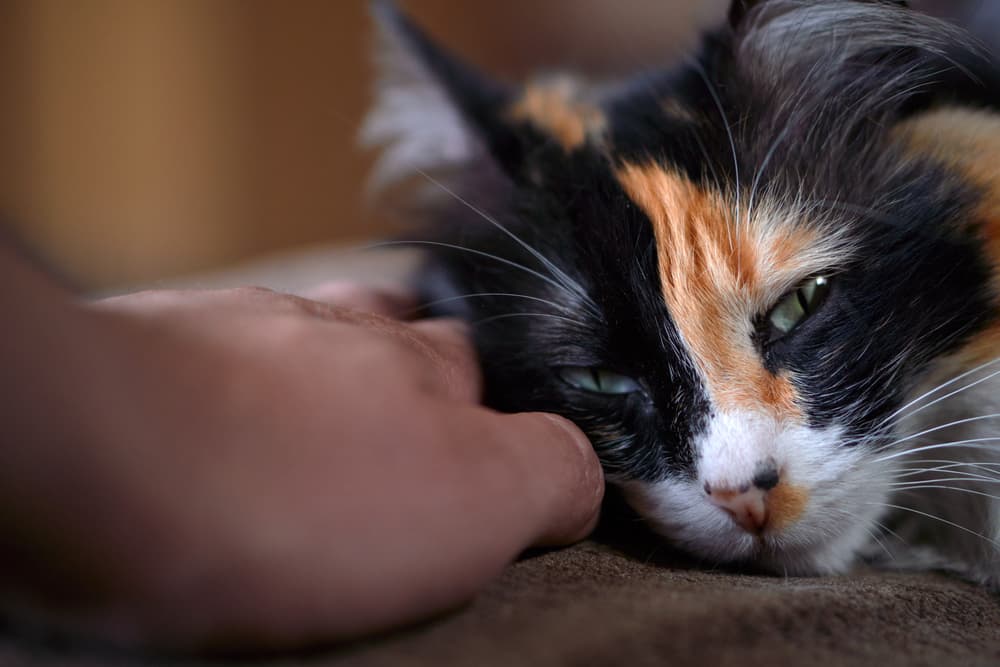
Cats form strong social ties with people and places. It could be that your cat shares a strong bond with you but hasn’t formed that bond with anyone else in your household. Other reasons may be that your cat is curious about what you are doing, may have insecurity or separation anxiety, or may associate resources, including food, play, treats, and toys, only with you and not other people.
Should You Be Concerned About Your Cat Following You?

In general no, following behavior is considered normal feline behavior. One reason to be concerned is if your cat exhibits sudden, clingy behavior that wasn’t present before.
This is usually due to something that is bothering the cat, and can include separation anxiety, something that has frightened the cat, or an underlying medical condition.
Hyperthyroidism, diabetes, chronic pain from any source, or neurological conditions can all cause clingy, abnormal behavior. So, if your cat suddenly starts acting overly clingy, have your feline checked out by a local veterinarian to rule out any medical causes.
How Can You Tell if Your Cat Has Separation Anxiety?

While separation anxiety in dogs is a well documented condition, less is known about separation anxiety in cats. Separation anxiety in cats is triggered by being separated from a human or other animal with which the cat has a strong bond. Separation anxiety can range from mild to severe. Mild forms of separation anxiety may go unnoticed by humans, and severe forms can be misinterpreted as bad behavior—which it is not.
You can tell if your cat has separation anxiety if you notice that your cat behaves differently when you prepare to leave. If your cat hides, meows more, follows you more, or tries to block you from leaving when you pick up your keys or purse, then your cat may have separation anxiety.
Cats with separation anxiety are also known to exhibit the following behaviors when they are left alone:
- Urinating or defecating outside the litter box.
- Loud and frequent meowing.
- Destructive behavior, such as scratching furniture, curtains, or knocking things over.
- Vomiting and/or diarrhea.
- Excessive eating or not eating.
- Increased aggression with other cats in the household.
- Excessive grooming, resulting in bald patches.
- Overly enthusiastic greeting when you come home.
